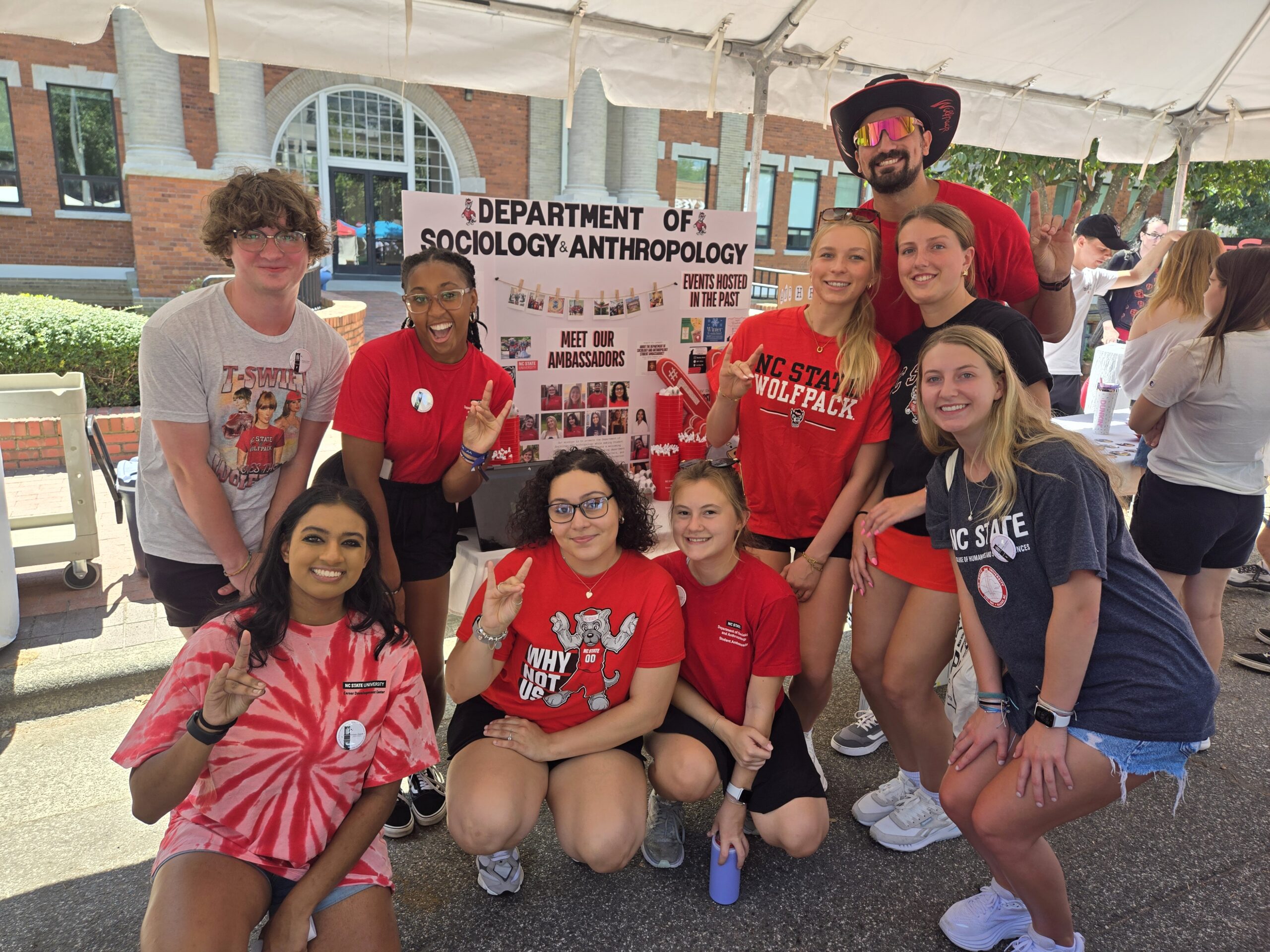Anthropology is understood by many as studying rocks and dinosaurs in hot deserts like Indiana Jones, but what if Anthropology is more than that? Of course archaeology is important to the study of Anthropology, but what if I told you that there are three main subfields of Anthropology that you can focus on here at NC State? After interviewing students and Anthropology advisor, I learned how broad and beautiful a subject such as Anthropology is and I hope many others can discover this too.
Archaeology is, arguably, the most notorious version of anthropology. Olivia Fisher, an Anthropology major and a Department Student Ambassador, said she picked archaeology because of movies such as Indiana Jones and Holes, which is what many think when talking about Anthropology. Archaeologists study past cultures through artifacts that have been rediscovered. This often has a large crossover with History and while many people with a degree in Archaeology do conduct fieldwork, many also work in museums, contractors, and non-profit organizations. Some classes offered here at State such as ANT 424: Bioarchaeology, ANT 581:Zooarchaeology, and ANT 575:Environmental Archaeology are just some of the interesting archaeology courses that you could take! Olivia, who’s interested in doing with Eastern and Ancient Mediterranean Archaeology said her favorite class was ANT 495 which is Archaeology of Mesopotamia. NC State also has an amazing study abroad program in Cyprus that allows study to discover the world of Archaeology hands on.
Another interesting subfield of Anthropology is Physical Anthropology. Physical Anthropology history of humans and even primates, such as Dr. Tara Clarke’s research with Madagascar Lemurs. Dr. Clarke may often be seen teaching ANT 251: Physical Anthropology, the introductory course that many students take to fill a GEP, but what you gain from the course is so much more than that. Many of these classes are often half lecture based half lab based for students who often get bored just sitting around and watching blank slides. An online discussion board also allows students to interact with one another and converse about the topics that have been shared in class. Many with a Bachelor in Physical Anthropology can pursue medical school, work in zoos, and even in forensics. This shares a lot of traits with Archaeology in understanding history bu suching artifacts such as bones to deeper understand past societies and their evolutions. More classes such as ANT 428:Human Paleopathology, ANT 371: Human Variation and ANT 370: Introduction to Forensic Anthropology are just a few of the amazing classes on offer for someone interested in Physical Anthropology.
A lesser known but incredibly fascinating subfield of Anthropology is Cultural Anthropology. Cultural Anthropologists look at the history of culture and how they are ever shaping and changing such as Dr. Allison Greene who studied how development of nations intersects with sex, race and class in Mexico. Also Dr. Christian Doll studied the politics of South Sudan after they claimed independence in 2011 or Dr. Nora Haeen who is going to study in Mexico attempting to understand the question “What does it mean to live a good life?”. Dr. Chelsey Dyer also studies how the United States learns about policies in Latin America and how to shift this political consciousness. These are just some of the many topics someone studying Cultural Anthropology could research. While research is always an option many also end up using their degree as Social Workers, Human Resources, and Librarians. Many will start with the Introduction course for Cultural Anthropology ANT 252. Each class is different and special in which it allows people to learn “holistic presence valuable in any field” as Dr. Greene said. Dr. Haenn also said many of these classes start with lectures that allow students to become engaged with this information about human beings that have been alive for centuries. Dr. Dyer presents the evidence that allows many to be drawn deeper into the field. Two other classes such as ANT 310:Native Peoples and Cultures of North America or ANT 254: Language and Culture for any interested in learning more about Cultural Anthropology. Dmitri Fisher said their favorite course they had taken was Political Anthropology with Dr. Doll.
After interviewing so many professionals about their teachings in Anthropology, I asked each professor the same question and each time I was rewarded with a stressed face. The question ‘Describe Anthropology in one or two words?” wasn’t easy for many that have been studying these subjects for years: but they did it and gave me such a deeper understanding of what Anthropology is so I now share them with you.
Dr. Greene: “Human creativity”
Dr. Clarke: “Holistic and diverse”
Dr. Doll: “Cultural critic”
Dr. Haenn: “Understanding others”
Dr. Dyer: “Imagination”
Also, I asked two Anthropology students, two of our very own Student Ambassadors, some advice they would give to future students.
Dmitri Fisher: “ Be willing to both discuss and listen. Open yourself to the interpretations of your classmates and the authors you read and learn how to be both respectful and critical of yourself and others. Learning is a dynamic process, and it never ends”
Olivia Fiser: “Don’t be afraid to try out different courses, you never know how they will shape your degree plan and what connections you can make.”
No matter what subfield of Anthropology you decide on, you will learn so much about what it means to be human and how we and our primate counterparts are complex creatures that deserve to be studied and understood. As a Criminology major, I didn’t think I would be able to understand the beauty of Anthropology but I now believe I’m a better Criminology student because I understand Anthropology.
If you want to know more about Anthropology, the Anthropology Club run by Dr. Clarke and Dr. Greene is a great place to start!
This article was written by Abby Summerlin Criminology Major and Department of Sociology and Anthropology Student Ambassador

- Categories:



